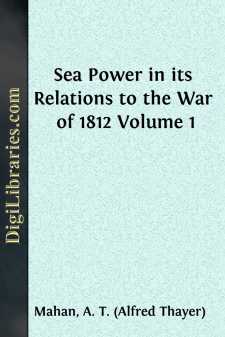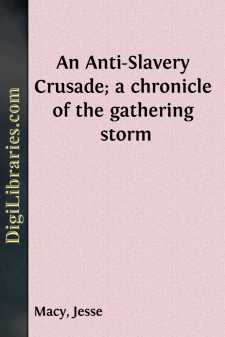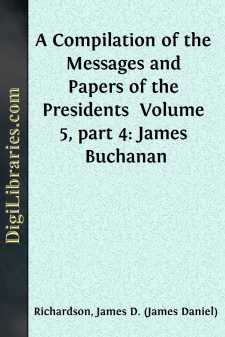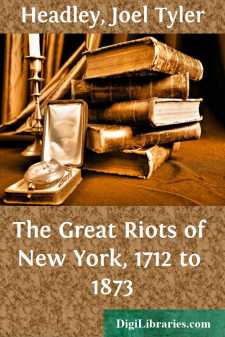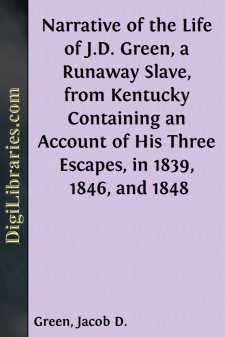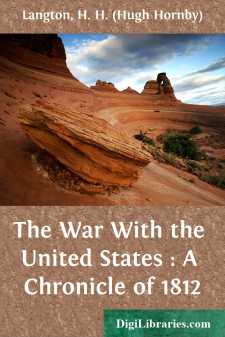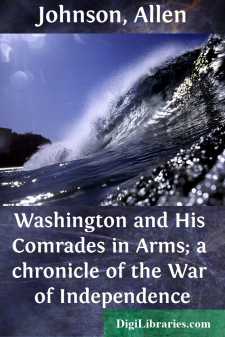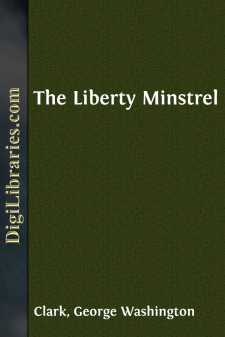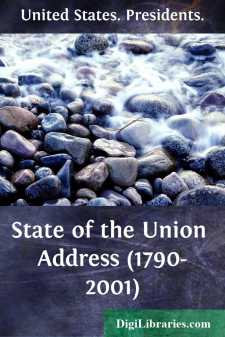History
- Africa 30
- Americas (North Central South West Indies) 50
- Ancient 68
- Asia 58
- Australia & New Zealand 8
- Canada 41
- Caribbean & West Indies 1
- Civilization 20
- Eastern Europe 12
- Europe 310
- Expeditions & Discoveries 60
- General 77
- Historical Geography 1
- Jewish 9
- Latin America 3
- Medieval 8
- Middle East 13
- Military 248
- Revolutionary 8
- Study & Teaching 5
- United States
- Western Europe 56
- World 13
United States Books
Sort by:
PREFACE The present work concludes the series of "The Influence of Sea Power upon History," as originally framed in the conception of the author. In the previous volumes he has had the inspiring consciousness of regarding his subject as a positive and commanding element in the history of the world. In the War of 1812, also, the effect is real and dread enough; but to his own country, to the...
more...
by:
Jesse Macy
CHAPTER I. INTRODUCTION The Emancipation Proclamation of President Lincoln marks the beginning of the end of a long chapter in human history. Among the earliest forms of private property was the ownership of slaves. Slavery as an institution had persisted throughout the ages, always under protest, always provoking opposition, insurrection, social and civil war, and ever bearing within itself the seeds...
more...
James Buchanan James Buchanan was born near Mercersburg, Pa., April 23, 1791. His father, James Buchanan, a Scotch-Irish farmer, came from the county of Donegal, Ireland, in 1783. His mother was Elizabeth Speer. The future President was educated at a school in Mercersburg and at Dickinson College, Pennsylvania, where he was graduated in 1809. Began to practice law in Lancaster in 1812. His first public...
more...
CHAPTER I. Character of a City illustrated by Riots.—New Material for History ofDraft Riots.—History of the Rebellion incomplete without History ofthem.—The Fate of the Nation resting on the Issues of the Struggle in NewYork City.—The best Plan to adopt for Protection against Mobs. The history of the riots that have taken place in a great city from its foundation, is a curious and unique one,...
more...
by:
Jacob D. Green
NARRATIVE, &c. My father and mother were owned by Judge Charles Earle, of Queen Anne's County, Maryland, and I was born on the 24th of August, 1813. From eight to eleven years of age I was employed as an errand boy, carrying water principally for domestic purposes, for 113 slaves and the family. As I grew older, in the mornings I was employed looking after the cows, and waiting in the house,...
more...
CHAPTER I OPPOSING CLAIMS International disputes that end in war are not generally questions of absolute right and wrong. They may quite as well be questions of opposing rights. But, when there are rights on both sides; it is usually found that the side which takes the initiative is moved by its national desires as well as by its claims of right. This could hardly be better exemplified than by the...
more...
by:
Allen Johnson
CHAPTER I. THE COMMANDER-IN-CHIEF Moving among the members of the second Continental Congress, which met at Philadelphia in May, 1775, was one, and but one, military figure. George Washington alone attended the sittings in uniform. This colonel from Virginia, now in his forty-fourth year, was a great landholder, an owner of slaves, an Anglican churchman, an aristocrat, everything that stands in...
more...
PREFACE. All creation is musical—all nature speaks the language of song. 'There's music in the sighing of a reed,There's music in the gushing of a rill;There's music in all things, if man had ears;The earth is but an echo of the spheres.' And who is not moved by music? "Who ever despises music," says Martin Luther, "I am displeased with him." 'There is a...
more...
Fellow-Citizens of the Senate and House of Representatives: I embrace with great satisfaction the opportunity which now presents itself of congratulating you on the present favorable prospects of our public affairs. The recent accession of the important state of North Carolina to the Constitution of the United States (of which official information has been received), the rising credit and...
more...


